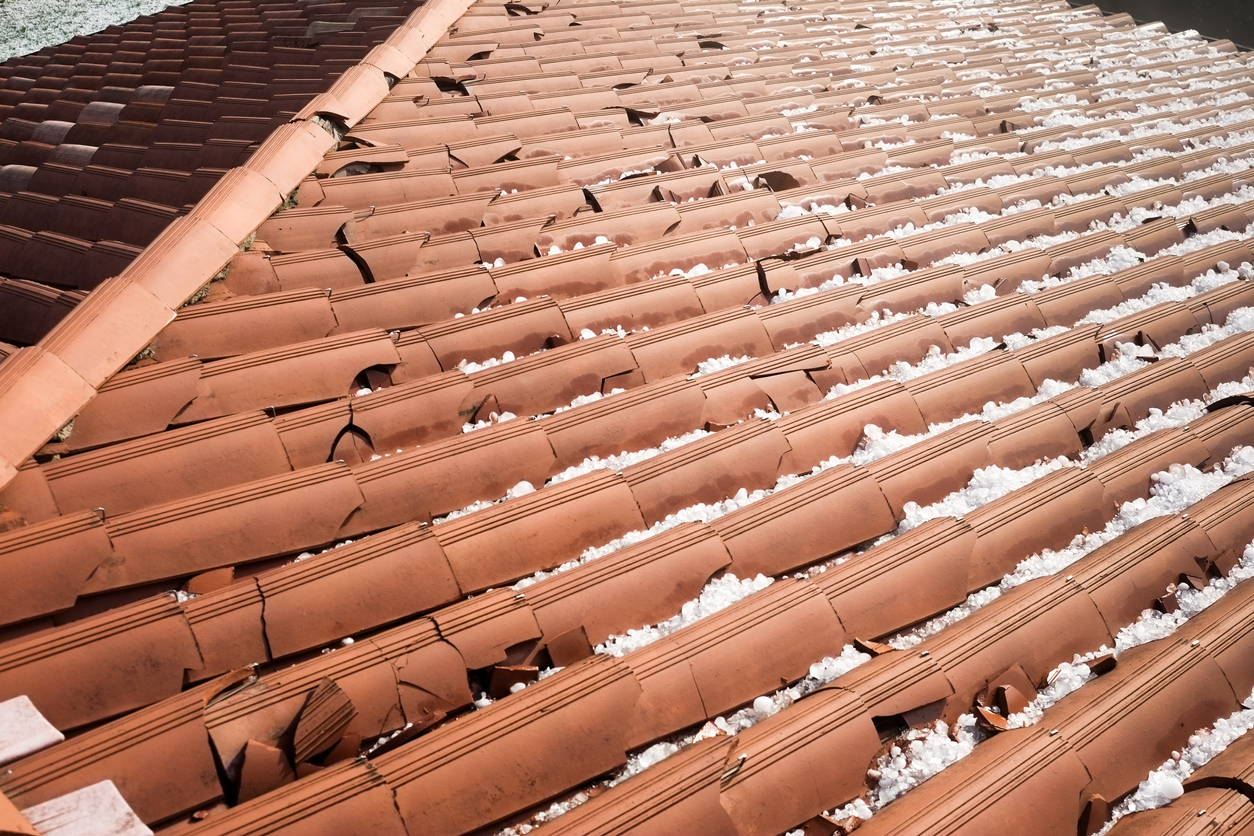Hail Damage?—Not From This Hailstorm

Many insurance companies adjusting hail damage claims have a checklist of items that each adjuster must answer before payment of a claim. One of the items at the top of the list is whether there have been any prior hailstorms at the loss location. From a policyholder’s perspective, most do not go onto a roof nor call a roofer unless a leak occurs or there is obvious damage.
For many policyholders, the typical response after calling the insurer to look at a loss is that “the hail damage is not that bad from the latest storm, and much of the damage occurred from a previous hailstorm.” The truth is that the insurance companies may be accurate with this position. In some cases, a lot of damage may be from a preexisting hailstorm that the policyholder never knew existed because nobody looked at the roof until a subsequent storm occurred. However, the issue complicates the adjustment and resolution of hailstorm claims, and it is a common response from many carriers.
A classic example of this is a recent Texas appellate decision involving multiple hail damage claims.1 A March 2017 hailstorm was reported to the insurer. A dispute arose about the amount of damage, and a demand for appraisal was made for that particular hailstorm. Unfortunately, the appraisal award for the March 2017 was not great.
The issue was that the policyholder also contended that much of the damage was from a March 2016 hailstorm. The insurance company contended that the notice of the March 2016 loss was late and denied the claim. It also refused to go to an appraisal of the March 2016 hailstorm claim. The insurance company also argued that the March 2017 hailstorm appraisal award precluded coverage for the March 2016 loss.
The appellate court ruled against the insurance company noting:
We begin with the most important consideration when interpreting any contract: the plain meaning of the Appraisal Award’s operative language….The Appraisal Award states the reported date of loss is March 26, 2017, states the cause is ‘Hail and Wind,’ and lists the 2017 Policy number. The appraisers certified they ‘performed the duties assigned to us in accordance with the appraisal provision of the policy.’…The only policy referenced in the Appraisal Award is the 2017 policy. The clarification paragraph states in relevant part: ‘The above scope of work and dollar amounts represents the entire loss as a result of the subject hailstorm. . . The above sums are the total dollar amounts of the claim and are subject to all of the terms and conditions of the subject policy.’
The Appraisal Award reflects the loss caused by a singular hailstorm, the ‘subject hailstorm,’ and subject to a singular policy, the listed 2017 Policy.’…In this case, the specific occurrence is the 2017 hailstorm, and the appraisers determined the amount of loss caused by that storm as opposed to the amount of loss caused by everything else, including prior hailstorms.
The appellate court sent the matter back to the trial court to determine the timing of the alleged late notice and whether the alleged late notice caused any prejudice to the insurer as required under Texas law:
‘[A]n insured’s failure to timely notify its insurer of a claim or suit does not defeat coverage if the insurer was not prejudiced by the delay.’ PAJ, Inc. v. Hanover Ins. Co., 243 S.W.3d 630…(Tex. 2008). ‘[A]n immaterial breach does not deprive the insurer of the benefit of the bargain and thus cannot relieve the insurer of the contractual coverage obligation.’…(citing Hernandez v. Gulf Group Lloyds, 875 S.W.2d 691, 692 (Tex.1994)); see also Prodigy Communications Corp. v. Agric. Excess & Surplus Ins. Co., 288 S.W.3d 374…(Tex. 2009).
The 2016 Policy contains a prompt-notice provision. The 2016 Policy requires Richland Trace to provide ‘prompt notice of the loss or damage,’ including a description of the property involved, to Landmark and, ‘[a]s soon as possible, give [Landmark] a description of how, when and where the loss or damage occurred.’ Although appellees argue Richland Trace failed to give notice in a timely fashion, the record contains no evidence about when Richland Trace provided notice of the alleged loss or damage caused by the March 2016 storm. Even if we assume for purposes of this issue that the evidence shows Richland Trace did not timely give notice, there also is no evidence in the record that Landmark was prejudiced by any delay.
Thought For The Day
If you are caught on a golf course during a storm and are afraid of lightning, hold up a 1-iron. Not even God can hit a 1-iron.
—Lee Trevino
_______________________________
1 Richland Trace Owners Association v. Landmark American Ins. Co., No. 05-20-00944-CV (Tex. App. Apr. 11, 2022).



